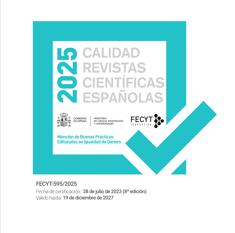Dermatological health governance: Health prevention model and treatment with implications for an intervention device from Social Work
DOI:
https://doi.org/10.15257/ehquidad.2017.0004Keywords:
Governance, Health, Disease, Parasite, Intervention.Abstract
Studies of the Social Work of dermatological health show that prevention is a low cost factor with respect to the treatment of a disease acquired by a contamination of parasites. In that sense, a documentary, cross-sectional and descriptive study was carried out with a non-probabilistic selection of indexed sources, registered in ISSN and DOI, with the purpose of establishing an integral model for the study Of an outbreak of dermatological contamination and to derive the strategies of intervention from the Social Work in institutions of basic education. The McKendrick (1926: 100) propagation model proved to be the most complete, although it offers the integration of other models that explain the problem of contagion and the future scenarios of treatment, recontagio and prevention. The need to carry out strategies for prevention and promotion of disease-free lifestyles, as well as individual self-care as collective co-responsibility, is highlighted.Downloads
References
Abreu, M. A. (2009). El trabajo social sanitario en la atención primaria de salud. Enfermería, 3 (2), 70-79.
Carballeda, A.J. (2004). La intervención en lo social, exclusión e integración en los nuevos escenarios sociales. Buenos Aires: Paidós.
Carballeda, A.J. (2006). El Trabajo Social desde una mirada histórica centrada en la intervención. Del orden de los cuerpos al estallido de la sociedad. Buenos Aires: Paidós.
Carballeda, A.J. (2008). Los cuerpos fragmentados. La intervención social en los escenarios de exclusión y el desencanto. Buenos Aires: Paidós.
Cheeran, M. y Renjith, G. (2015). Scope of social work profession in industrial establishment. International Journal of Advances Research in Management and Social Sciences, 4 (8), 315-326.
Despard, M. y Chowa, G. (2010). Social workers’ interest in building individuals’ financial capabilities. Journal Financial Therapy, 1 (1), 23-41 doi: 10.4148/jft.v1i1.257
Dominelli, L. (2012). Antidepresive social work theory and practice. Trabajo Social, 14 (1), 201-215.
Duque, A. (2013). Metodologías de intervención social. Palipsestos de los modelos en Trabajo Social. Bogotá: Epílogos.
Farinde, A. y Gable, K. (2014). Interprofesional practice approach between social work and pharmacy. International Journal Social Work, 1 (1), 70-77 doi: 10.5296/ijsw.v1i1.5777
López, E. y Chaparro, M. (2006). Competencias laborales del trabajador social vista desde el mercado laboral. Tabula Rasa, 5 (1), 261-293.
Lotka, A. J. y Volterra, V. (1956). Elements for psysical biology. New York: Dower
McKendrick, A. G. (1926). Applications of mathematics to medical problems. Proceedings of the Edinburgh Mathematical Society, 44 (1), 98-130.
Organización Mundial de la Salud (2013). Temperatura histórica oceánica y de la superficie. New York: OMS.
Quetelet, A. (1848). Du systeme social et des lois qui le regissent. Paris: Guillaumin.
Raudava, C. (2013). The impacts for developing the profession of social work in the post-comunist context. European Scientific Journal, 9 (20), 12-30.
Reid, P. (2006). The purpose of a school of social work. An American perspective. Social Work Education, 25 (5), 461-484 doi: 10.1080/02615470600738817
Ribeiro, M., López, R. y Mancinas, S. (2007). Trabajo social y política social en México. Revista Internacional de Ciencias Sociales y Humanidades, 17 (2), 175-200.
Walker, S. (2015). The pendulum swings back: relation based social work in England then and now. Journal of International Scientific Publications, 13 (1), 49-56.
Way, M. (2013). Feminist theory, lesbian parents and social work. Sincronía, 17 (63), 1-20.












